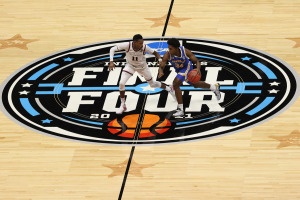March Madness paying off for players under mishmash of rules
This week, the University of Kansas, Villanova University, the University of North Carolina and Duke University will play in the first Final Four to be held under the new world of “name, image and likeness,” or NIL, endorsements in college sports.








